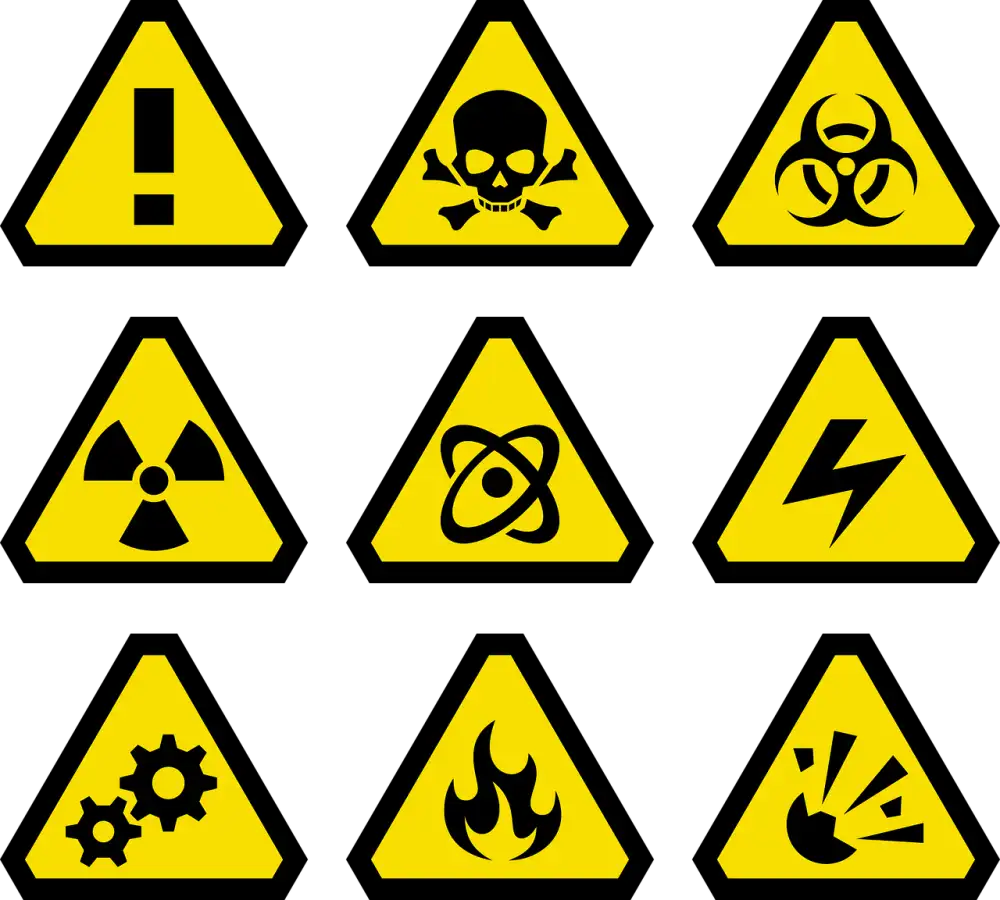Air Fryer Toxic: Unveiling the Potential Health Risks of This Trendy Appliance

- Exploring the Potential Health Risks of Air Fryers
- The Impact of High Temperatures on Food and Health
- Examining the Formation of Harmful Compounds during Air Frying
- Understanding the Link between Acrylamide and Air Fried Foods
- The Role of Advanced Glycation End Products (AGEs) in Air Fryer Cooking
- Tips for Minimizing Health Risks when Using an Air Fryer
Air fryers have gained immense popularity in recent years, promising a healthier alternative to traditional deep-frying. With their ability to cook crispy and delicious food using minimal oil, it's no wonder why they have become a trendy kitchen appliance. However, there are growing concerns about the potential health risks associated with air fryer usage. In this article, we will delve into these concerns and explore the impact of high temperatures on food and health. It is crucial to understand these risks in order to make informed choices for healthy cooking with air fryers.
Exploring the Potential Health Risks of Air Fryers
Air fryers have gained popularity in recent years for their ability to cook crispy and delicious food with minimal oil. However, there are growing concerns about the potential health risks associated with using these appliances. While air frying may seem like a healthier alternative to deep frying, it is important to understand the potential drawbacks.
One of the main concerns is the impact of high temperatures on food and health. Air fryers use hot air circulation to cook food at high temperatures, which can lead to the formation of harmful compounds. These compounds include acrylamide and advanced glycation end products (AGEs), both of which have been linked to various health issues.
Acrylamide is a chemical that forms when starchy foods are cooked at high temperatures. It has been classified as a probable human carcinogen by the International Agency for Research on Cancer (IARC). Studies have shown that acrylamide intake through food consumption may increase the risk of certain types of cancer, such as kidney, ovarian, and endometrial cancer.
AGEs, on the other hand, are formed when proteins or fats react with sugars at high temperatures. These compounds have been associated with inflammation and oxidative stress in the body, which can contribute to chronic diseases like diabetes, heart disease, and Alzheimer's disease.
While more research is needed to fully understand the extent of these health risks, it is important for consumers to be aware of them when using air fryers. Taking steps to minimize exposure to harmful compounds can help mitigate potential health effects.
In conclusion, while air fryers offer a convenient way to cook crispy foods with less oil, there are potential health risks associated with their usage. Understanding these risks and taking precautions can help individuals make informed choices for healthier cooking options.
The Impact of High Temperatures on Food and Health
When it comes to air frying, one of the primary concerns is the impact of high temperatures on both food and health. Air fryers typically reach temperatures of around 400°F (200°C) or higher, which can lead to certain changes in the composition of food.
High temperatures can cause the breakdown of nutrients in food, leading to a loss of vitamins and minerals. This can be particularly concerning for individuals who rely on air fryers as their primary method of cooking. Additionally, the high heat can also alter the texture and taste of certain foods, potentially affecting their overall nutritional value.
Furthermore, cooking at such high temperatures can also lead to the formation of harmful compounds in food. These compounds include acrylamide and advanced glycation end products (AGEs), which have been linked to various health issues when consumed in excessive amounts.
It is important to note that while some studies suggest a potential link between high-temperature cooking methods like air frying and certain health risks, more research is needed to fully understand the extent of these effects. In the meantime, it is advisable to take precautions when using an air fryer and make informed choices about your cooking methods for optimal health.
Examining the Formation of Harmful Compounds during Air Frying
During the air frying process, harmful compounds can be formed due to the high temperatures involved. One such compound is acrylamide, which is known to be a potential carcinogen. Acrylamide forms when starchy foods, such as potatoes or bread, are heated at high temperatures in the presence of certain amino acids and sugars. This chemical reaction occurs in both traditional frying methods and air frying. Another harmful compound that can form during air frying is advanced glycation end products (AGEs). AGEs are formed when proteins and sugars react at high temperatures, resulting in the browning or caramelization of food. These compounds have been linked to various health issues, including inflammation and oxidative stress. It's important to be aware of these potential risks and take steps to minimize their formation when using an air fryer for cooking.
Understanding the Link between Acrylamide and Air Fried Foods
Acrylamide is a potentially harmful chemical compound that forms when starchy foods are cooked at high temperatures, such as in the process of air frying. This compound has been linked to various health risks, including an increased risk of cancer. When foods like potatoes, bread, or even certain vegetables are exposed to high heat, the sugars and amino acids present in them react to form acrylamide. The longer the cooking time and the higher the temperature, the more acrylamide is likely to be formed. Therefore, it's important to be aware of this potential health risk when using an air fryer and take steps to minimize exposure.
The Role of Advanced Glycation End Products (AGEs) in Air Fryer Cooking
Another potential health risk associated with air fryer cooking is the formation of advanced glycation end products (AGEs). AGEs are harmful compounds that form when sugars react with proteins or fats at high temperatures.
When foods are cooked in an air fryer, the intense heat can cause sugars to react with proteins and fats, leading to the formation of AGEs. These compounds have been linked to various health problems, including inflammation, oxidative stress, and an increased risk of chronic diseases such as diabetes and heart disease.
Research has shown that air frying can significantly increase the levels of AGEs in food compared to other cooking methods. This is particularly concerning because a diet high in AGEs has been associated with accelerated aging and an increased risk of age-related diseases.
To minimize the formation of AGEs when using an air fryer, it is important to avoid overcooking or charring food. Using lower temperatures and shorter cooking times can help reduce the formation of these harmful compounds. Additionally, marinating foods before air frying has been found to be effective in reducing AGE formation.
It is also advisable to include a variety of fresh fruits and vegetables in your air fryer recipes. These natural antioxidant-rich foods can help counteract the negative effects of AGEs on your health.
By being aware of the potential risks associated with AGE formation during air frying and taking steps to minimize their presence, you can make more informed choices for healthier cooking with your air fryer.
Tips for Minimizing Health Risks when Using an Air Fryer
1. Use high-quality oils: Opt for oils with a high smoke point, such as avocado or coconut oil, to minimize the formation of harmful compounds.
2. Limit cooking time and temperature: Avoid excessive temperatures and cook times to reduce the production of acrylamide and AGEs.
3. Preheat properly: Preheating the air fryer helps to ensure even cooking and reduces the risk of undercooked food.
4. Don't overcrowd the basket: Leave enough space for proper air circulation, allowing food to cook evenly and reducing the need for higher temperatures.
5. Marinate before cooking: Marinating foods can help reduce the formation of harmful compounds during air frying.
6. Choose healthier ingredients: Opt for fresh, whole foods instead of processed options that may contain additives or preservatives.
7. Rotate and flip food: To promote even browning, rotate and flip food halfway through the cooking process.
8. Clean regularly: Regularly clean your air fryer to prevent the buildup of residue that can contribute to health risks.
By following these tips, you can enjoy healthier cooking with your air fryer while minimizing potential health risks associated with its usage.
While air fryers have gained popularity for their ability to create crispy and delicious foods with less oil, it is important to be aware of the potential health risks associated with their usage. The high temperatures used in air frying can lead to the formation of harmful compounds, such as acrylamide and advanced glycation end products (AGEs), which have been linked to various health issues.
To minimize these risks, it is crucial to use your air fryer responsibly. Firstly, avoid overcooking or burning your food, as this can increase the formation of harmful compounds. Secondly, consider using healthier cooking oils like olive oil or avocado oil sparingly instead of relying solely on vegetable oils. Additionally, marinating your food before air frying can help reduce the formation of acrylamide.
Furthermore, diversify your cooking methods by incorporating other techniques like steaming or baking into your routine. This will not only add variety to your meals but also reduce your reliance on air frying.
Lastly, remember that moderation is key. While air frying can be a convenient and healthier alternative to deep-frying, it should not replace a balanced diet that includes a wide range of fresh fruits, vegetables, whole grains, and lean proteins.
By being informed about the potential health risks and following these tips for responsible usage, you can continue to enjoy the benefits of air frying while minimizing any negative impact on your health.
Published: 20. 12. 2023
Category: Health



